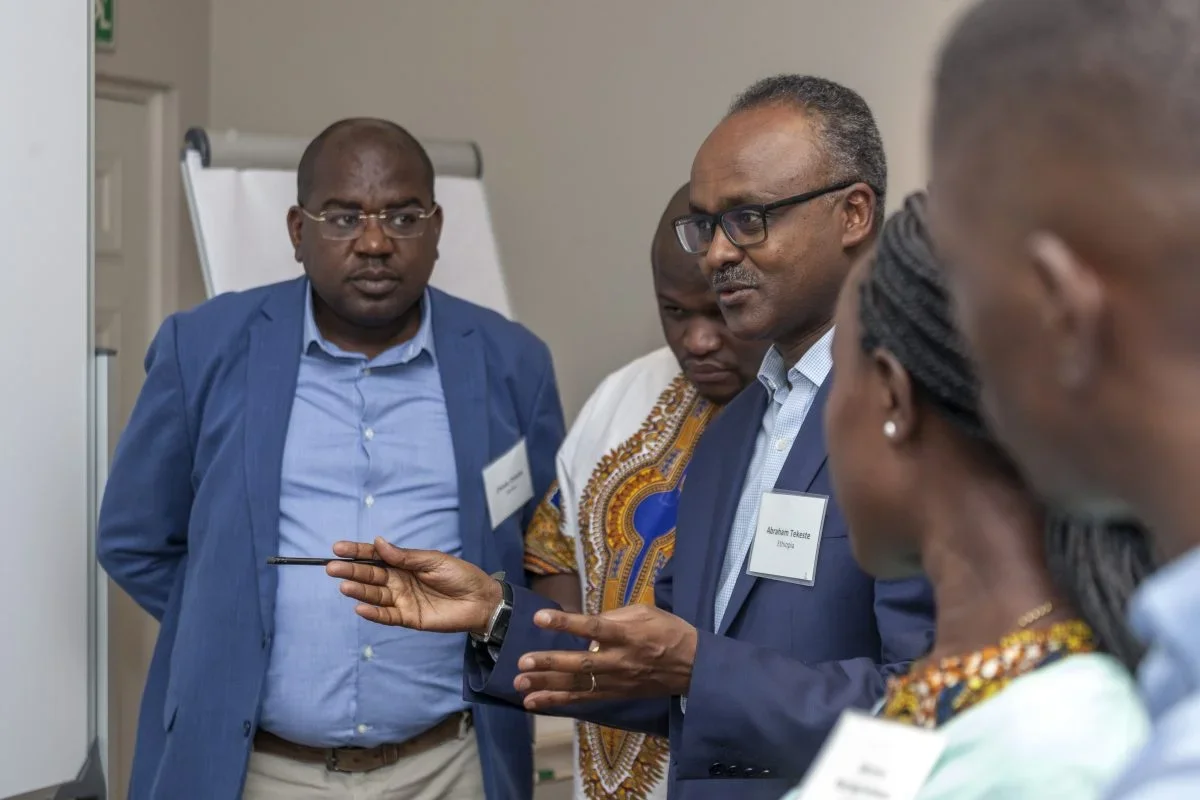Over three days in late November about 25 currently serving government Ministers from across Africa gathered in Johannesburg, together with a similar number of selected young African achievers, to jointly develop new approaches to current high-levels of youth unemployment across Africa and to explore possibilities for optimizing the prospects of a demographic dividend.
Ministers, including finance, economic planning, education, health and youth had all participated in Ministerial Forums at Harvard over the past three years and continue to benefit from the post-Harvard support that is a key part of the Harvard Ministerial Leadership Program.
The Harvard Ministerial Roundtable for Policy Innovation in Human Capital Development in Johannesburg extended the on-going peer-networking among ministers participating in the Harvard Ministerial Leadership Program to include for the first time a cross-section of young African achievers from diverse backgrounds in discussions about optimizing Africa’s human capital.
Africa currently utilizes only about 55% of its human capital capacity mainly due to poor educational standards and inappropriate education for the requirements of the job market. Even though access to education has increased dramatically over the past 15 years, only about 45% of Africans graduate from secondary school. Optimal human capital investment could increase annual average African GDP by $95 billion or 6%.
The main goal of the Roundtable was to identify strategic intervention points in the health and education of young people to ensure that the in-school generation is better equipped to make productive contributions to the economy. In addition, Ministers and youth participants explored more effective strategies to enable opportunities for income creation and entrepreneurialism for the two thirds of under 30’s who are currently unemployed. Cross-cutting issues included continuing gender inequity in education and unemployment, and other barriers to economic participation by women, as well as the role of technology in innovation across multiple spheres and in changing the nature of work.
Young achievers invited to participate in the Johannesburg Roundtable were selected through a call for nominations which elicited more than 100 candidates. Those selected included successful innovators, several entrepreneurs, educators, health practitioners, community workers, as well as advocates for gender equity and adolescent reproductive health. This unique opportunity for young Africans and policymakers to work together to understand challenges affecting education, employment and life chances for African youth people, provided opportunity for Ministers to map innovation plans ranging from innovations in their own ministries making it easier for young people to access enterprise finance and mentoring support, plans to introduce universal early childhood education nationally, to strategic interventions in secondary education, as well as increasing access to adolescent friendly health services.
In a follow-up survey, participating Ministers and youth unanimously rated the Johannesburg Ministerial Roundtable as being ‘extremely useful’ or ‘very useful’ and over 80% of Ministers said they are ‘extremely likely’ to include young people in future considerations about their Ministries’ policies/programs. Key takeaways cited include the need for collaboration, detailed implementation plans, and rigorous monitoring.


